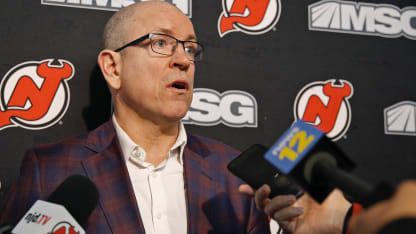FEATURE: Breaking Down the MOU
Amanda Stein takes a look at the Memorandum of Understanding for the new Collective Bargaining Agreement

1-ON-1 | CBA discussion with Tom Fitzgerald
Amanda Stein takes a look at the Memorandum of Understanding for the new Collective Bargaining Agreement

1-ON-1 | CBA discussion with Tom Fitzgerald